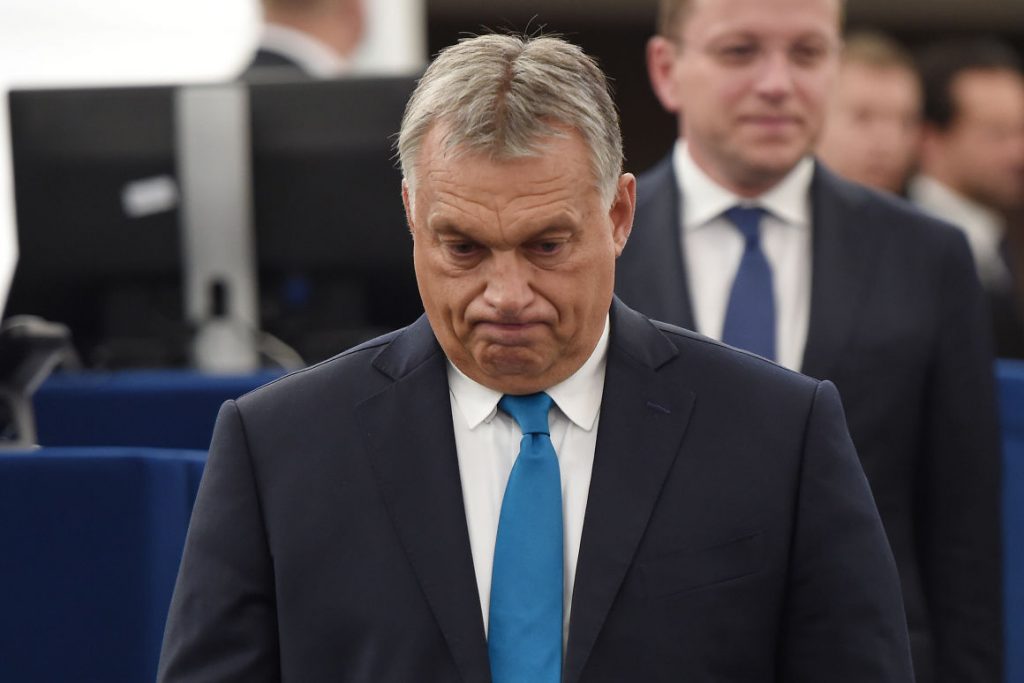By a margin of 448 to 197, and with 48 members abstaining, the European Parliament accepted the Sargentini Report on the demise of democracy, systemic corruption and the attack on fundamental European values in Hungary by the ruling Orbán regime. With this, the issue of what to do with the rogue member state moves to the European Council, where representatives of the national governments of the European Union must determine if European values are, indeed, in danger in Hungary. What we know from Wednesday’s vote is that much of the European People’s Party, of which Fidesz is a member, has decided that it is no longer tenable to remain silent when faced with the abuses of Viktor Orbán. Manfred Weber, the leader of the conservative faction declared on Wednesday, in a tweet: “Today I will vote in favour of triggering #Article7. I have always been in favour of building bridges and I want to continue to do so but yesterday I didn’t see any readiness from the Hungarian PM to make a move towards his EU partners and address our concerns.”
European Christian Democrats, conservatives of all stripes, liberals, social democrats and green party politicians from across 28 member states of the European Union have all reached the same conclusion: democracy is under sustained and systemic attack in Hungary by the ruling party and the country is gripped by systemic corruption. This is undoubtedly an important step in the history of the European Union and its relationship with renegade Hungary. Today’s decision begs the question: if two thirds of MEPs, representing all political stripes across Europe, have determined that European Union values are indeed under coordinated attack in Hungary and that corruption is rampant, how long can the EU continue bankrolling the regime that sustains this assault, now formally recognized and denounced for its malevolence?
The process that will unfold against the Hungarian regime will prove to be a lengthy one. Now that the Sargentini Report has been accepted, the foreign ministers of member states will begin discussions and investigations on the situation in Hungary. According to Article 7 of the Treaty on European Union, at the end of this process, Hungary’s voting rights in the Council of Europe may be suspended. It is, however, almost inconceivable that this would happen, as it requires unanimity among the national governments of member states.
While Hungary may not in the end be stripped of its voting rights, this decision is significant for a number of reasons. First, the systematic demolition of parliamentary democracy, the almost complete erosion of the free press in Hungary and the inherently corrupt nature of Fidesz, in effect a criminal organization at the helm of an EU member state, will now be an on-going narrative within the European Union. Second, the European People’s Party has finally decided to part ways with Fidesz and with Viktor Orbán. For now Fidesz remains a member. But it this really tenable for either party, namely the EPP or Hungary’s ruling regime? Over these past few days, Mr. Orbán argued that he was working to ensure an EPP victory in the 2019 EP elections and that Fidesz belonged firmly in this camp. Today we see that nearly all of Mr. Orbán’s allies voted against him. What’s more, for further emphasis and embarrassment: a long standing ovation, along with loud cheers in the European Parliament, followed the condemnation of the Hungarian regime.
The Hungarian government and its propagandists will continue to argue that this decision was brought by “communists.” This was precisely Zsolt Bayer’s line of argument in Magyar Idők this morning, in a piece published right before the vote. Absurd as this is given how the vote panned out, it will likely be how the regime’s media tries to explain an embarrassing situation to its supporters. And there is no doubt: this should be embarrassing for every Hungarian citizen. Hungary is the first country in the European Union to be singled out for systemic rule of law violations and rampant corruption by the European Parliament. Hungary is infected by a virus that threatens the entire EU and at long last, Europe realizes that it stands exposed.




